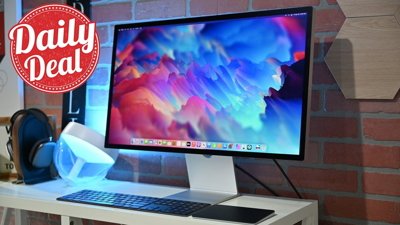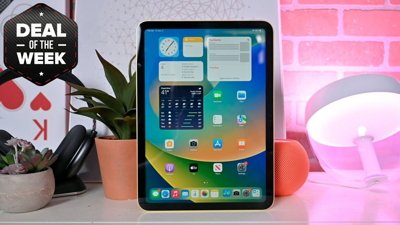Rubinstein will replace Ed Colligan, who is stepping down after sixteen years of leadership at the company. In addition to acting as chief executive, Rubinstein will remain Palm's executive chairman, a role he adopted in October of 2007 when he was courted to help rescue the sinking smartphone maker, which had long veered off the innovation super-highway and found itself scrambling for ideas.
“I am very excited about taking on this expanded role at Palm. Ed and I have worked very hard together the past two years, and I’m grateful to him for everything he’s done to help set the company up for success,†said Rubinstein. "Due in no small part to Ed’s courageous leadership, we’re in great shape to get Palm back to continuous growth, and we plan to keep the trajectory going upward.â€
Rubinstein's surge to Palm's highest office comes just days after the company began selling its new $200 Pre smartphone, a device widely believed to pose the greatest competitive threat yet to Apple's similarly-positioned and priced iPhone.
"With Palm webOS we have ten-plus years of innovation ahead of us, and the Palm Pre is already one of the year’s hottest new products," Rubinstein said while accepting his new position.
Prior to joining Palm, Rubinstein employed his masters in electrical engineering at high-tech firms including Hewlett-Packard and Ardent Computer Corp. He was approached by Steve Jobs in 1990 to run NeXT's hardware engineering team, a position he accepted before ultimately departing to join a startup that would later be absorbed by Motorola.
In 1996, Rubinstein was again summoned by Jobs, who had just returned to Apple as a special advisor to then CEO Gil Amelio following the Mac maker's purchase of NeXT a bit earlier that year. Though Apple was in dire straits and bleeding cash at the time, Rubinstein accepted an executive position as senior vice president of hardware engineering because he saw the company as "the last innovative high-volume computer maker in the world."
In the years that would follow, Rubinstein — better known as "Ruby" by his peers — would take the reigns of Apple's Mac hardware engineer team, which he helped streamline and restructure alongside Jobs' advisement. He would go on to oversee development of the original iMac and several future generations of Mac hardware including G4 and G5 systems.
With the Mac back on its feet, Apple began to pursue alternative markets and Jobs tapped Rubinstein, 54, to devise a digital music player in just eight months. It was Rubinstein who discovered the original iPod's key technology at the time, a 1.8-inch hard disk floating around Toshiba's labs with no target market.
The iPod was a near instant runaway success and the iPod was eventually spun off into its own division, which Jobs put under Rubinstein's watch. During his year's at Apple, Rubinstein was also responsible from some industrial design, low-level software and iPod accessory development. He abruptly announced his retirement in 2005 only to turn up to two years later to help pluck Palm from the same murky waters from which he helped save Apple a decade earlier.
 Katie Marsal
Katie Marsal













 William Gallagher
William Gallagher

 Christine McKee
Christine McKee
 AppleInsider Staff
AppleInsider Staff
 Chip Loder
Chip Loder

 Malcolm Owen
Malcolm Owen









59 Comments
Apple's doooooooooomed
Apple's doooooooooomed
Why ?
Does Palm make multimedia players ? No...
Does Palm make computers ? No...
Does Palm sell music, movies etc... ? No
Does Palm already sold more than 40 millions WebOs based devices ? No...
They still have a long way to go !
But I hope for Palm (and all of us, customers) that they will be among us for a bit longer now
(excuse me for my english I'm french...)
Stealing Apple's thunder...copycats.Well they can't keep it up forever.
My guess, RIM buys Palm or Apple buys it to kill it.
Or even worse, M$ buys Palm.There can only be one, maybe two. Three's a crowd.
Perhaps that's the purpose of this by Palm.
"Look were are hot, buy us!"
Wow.. "Ruby" is the CEO now?
I can't believe the board didn't throw Ed Colligan of the boat a long time ago.. Wasn't he the guy that said "We've been working on Smartphones for a decade... PC guys don't get it".. LOL.
Hilarious considering it took Rubenstein and a bunch of Apple engineers to make the Pre!
Benedict Arnold.